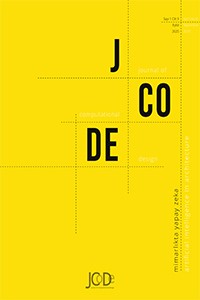Abstract
Oyunlaştırma, kişilerin gelişigüzel görevleri tamamlamasını güdülemekte kullanılır. İnternet altyapısının doksanlı yılların başında ticarileşmesiyle birlikte reklâm gelirleri ile bu altyapı fonlandı. Böylece küresel reklâm şirketleri, hedef kitleye daha iyi odaklanmak ve karlılığı artırmak için olabildiğince çok kişisel veri toplamayı hedeflediler. Bu amaçla uyumlu olarak, reklâm şirketlerinin İnternet üzerinden küresel çapta kullanmaya başlamalarıyla oyunlaştırmaya ilgi artmıştır. Bu yaklaşım kişilerin İnternet'i kullanmayı sürdürmek için özlük bilgilerinin gizliliğinden ödün vermesi gerektiği tartışmasını ortaya çıkarmaktadır. Bu çalışma oyunlaştırmanın kişisel veri toplanmasına etkisinin gösterilmesini amaçlar. Etkiler, oyunlaştırılmış bir ortamda yürütülen bir anketle ölçülmüştür. Kişilerin beyanları ve demografik bilgileri, davranışları ile örtüştürülerek gözlenmiştir. Çalışmanın ortaya koyduğu en dikkat çekici sonuç; kişiler farkına varmadan davranışlarının değiştirilebileceğidir. Bu durumda, oyunlaştırma uygulamalarını sürdüren kişilerin etik değerlerle çelişmemek için son derece dikkatli olmaları gerekir.
References
- [Acharya et al., 2019]Acharya, S., Matovu, R., Serwadda, A., andGriswold-Steiner, I. (2019). Gamification of wearable data collection:A tool for both friend and foe. InProceedings of the 2019 3rdInternational Conference on Compute and Data Analysis, ICCDA2019, pages 68––77, New York, NY, USA. Association for ComputingMachinery.
- [Bilbey, 2019]Bilbey, T. (2019). Oyunlaştırma anketi. Online.http://game.tolgabilbey.com/.
- [da Rocha Seixas et al., 2016]da Rocha Seixas, L., Sandro Gomes,A., and de Melo Filho, I. J. (2016). Effectiveness of gamificationin the engagement of students.Computers in Human Behavior,58:48–63.
- [Fernández-Luna et al., 2014]Fernández-Luna, J. M., Huete, J. F.,Rodríguez-Avila, H., and Rodríguez-Cano, J. C. (2014). EnhancingCollaborative Search Systems Engagement through Gamification. InProceedings of the First International Workshop on Gamification forInformation Retrieval, GamifIR ’14, pages 42––45, New York, NY,USA. Association for Computing Machinery.
- [Goodman, 2015]Goodman, M. (2015).Future crimes: Inside thedigital underground and the battle for our connected world. RandomHouse.
- [Makanawala et al., 2013]Makanawala, P., Godara, J., Goldwasser,E., and Le, H. (2013). Applying gamification in customer serviceapplication to improve agents’ efficiency and satisfaction. In Marcus,A., editor,Design, User Experience, and Usability. Health, Learning,Playing, Cultural, and Cross-Cultural User Experience, pages 548–557, Berlin, Heidelberg. Springer Berlin Heidelberg.
- [Pirker and Gütl, 2015]Pirker, J. and Gütl, C. (2015).EducationalGamified Science Simulations, pages 253–275. Springer InternationalPublishing, Cham.
- [Sailer et al., 2014]Sailer, M., Hense, J., Mandl, J., and Klevers, M.(2014). Psychological perspectives on motivation through gamifica-tion.Interaction Design and Architecture Journal, (19):28–37.
- [Walz and Deterding, 2015]Walz, S. P. and Deterding, S. (2015).The gameful world: Approaches, issues, applications. Mit Press.
- [Xu et al., 2013]Xu, F., Weber, J., and Buhalis, D. (2013). Gamifica-tion in tourism. In Xiang, Z. and Tussyadiah, I., editors,Informationand Communication Technologies in Tourism 2014, pages 525–537,Cham. Springer International Publishing.
Abstract
Gamification is used to motivate people to complete arbitrary tasks. It gains more attention recently as the advertisement companies started using gamification globally on the Internet. The Internet infrastructure is mostly funded by advertisements globally right after its commercialization in the early-nineties. Global advertisement agencies tend to collect as much personal data as possible to better target audiences and increase profits. This leads to the discussion of whether people's privacy is at stake to continue using the Internet. The aim of the study is to demonstrate the effects of gamification to private data collection. The effects are measured in a questionnaire in a gamified context. People's statements and their behavior is observed together with their demographic distribution. The most influential result indicates that it is possible to deviate people's behavior unwittingly. Therefore, practitioners in the area should take utmost care building ethical gamified setups.
Keywords
References
- [Acharya et al., 2019]Acharya, S., Matovu, R., Serwadda, A., andGriswold-Steiner, I. (2019). Gamification of wearable data collection:A tool for both friend and foe. InProceedings of the 2019 3rdInternational Conference on Compute and Data Analysis, ICCDA2019, pages 68––77, New York, NY, USA. Association for ComputingMachinery.
- [Bilbey, 2019]Bilbey, T. (2019). Oyunlaştırma anketi. Online.http://game.tolgabilbey.com/.
- [da Rocha Seixas et al., 2016]da Rocha Seixas, L., Sandro Gomes,A., and de Melo Filho, I. J. (2016). Effectiveness of gamificationin the engagement of students.Computers in Human Behavior,58:48–63.
- [Fernández-Luna et al., 2014]Fernández-Luna, J. M., Huete, J. F.,Rodríguez-Avila, H., and Rodríguez-Cano, J. C. (2014). EnhancingCollaborative Search Systems Engagement through Gamification. InProceedings of the First International Workshop on Gamification forInformation Retrieval, GamifIR ’14, pages 42––45, New York, NY,USA. Association for Computing Machinery.
- [Goodman, 2015]Goodman, M. (2015).Future crimes: Inside thedigital underground and the battle for our connected world. RandomHouse.
- [Makanawala et al., 2013]Makanawala, P., Godara, J., Goldwasser,E., and Le, H. (2013). Applying gamification in customer serviceapplication to improve agents’ efficiency and satisfaction. In Marcus,A., editor,Design, User Experience, and Usability. Health, Learning,Playing, Cultural, and Cross-Cultural User Experience, pages 548–557, Berlin, Heidelberg. Springer Berlin Heidelberg.
- [Pirker and Gütl, 2015]Pirker, J. and Gütl, C. (2015).EducationalGamified Science Simulations, pages 253–275. Springer InternationalPublishing, Cham.
- [Sailer et al., 2014]Sailer, M., Hense, J., Mandl, J., and Klevers, M.(2014). Psychological perspectives on motivation through gamifica-tion.Interaction Design and Architecture Journal, (19):28–37.
- [Walz and Deterding, 2015]Walz, S. P. and Deterding, S. (2015).The gameful world: Approaches, issues, applications. Mit Press.
- [Xu et al., 2013]Xu, F., Weber, J., and Buhalis, D. (2013). Gamifica-tion in tourism. In Xiang, Z. and Tussyadiah, I., editors,Informationand Communication Technologies in Tourism 2014, pages 525–537,Cham. Springer International Publishing.
Details
| Primary Language | English |
|---|---|
| Subjects | Software Testing, Verification and Validation |
| Journal Section | Research Articles |
| Authors | |
| Publication Date | September 30, 2020 |
| Published in Issue | Year 2020 Volume: 1 Issue: 3 |



